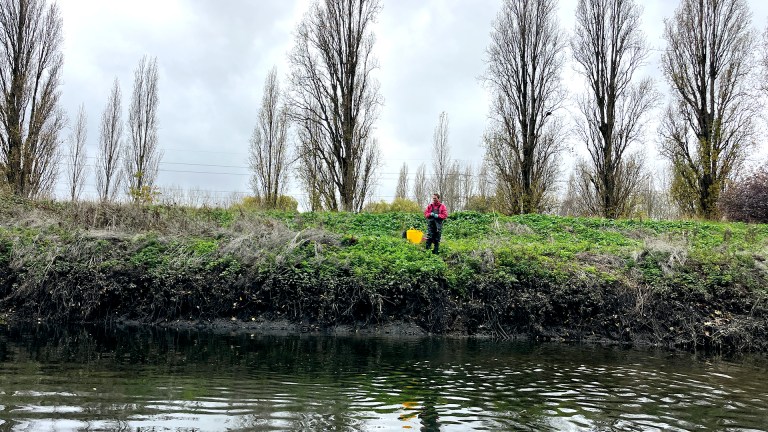“My mum raised me to be a little activist,” says Sian Sykes, the paddleboarding powerhouse behind Anglesey’s new ‘plastic-free’ status. It might feel timely given the controlled climate chaos driven through central London by Extinction Rebellion, but Sykes has had her eye on the environment all her life. Her mission took her to schools, business, homes – and along the canals and rivers of Wales on a two-month paddleboarding expedition.
Sykes was introduced to the great outdoors when she was only three weeks old, when wild camping with her mother. She was raised boycotting certain brands because of the rainforest destruction they contributed to. “My mum taught me that we all have a voice and we can make an impact,” she says.
She was astonished by the extent of the plastic pollution,
Later, Sykes lived in Manchester and London where she forged a successful career in advertising. She describes this as “18-hour days in an industry far removed from what was important to [her]”. It wasn’t until she was asked to work for a brand she had boycotted for most of her life – for environmental and humanitarian reasons – that she decided to pack it in and seek out a better balance in life.
She returned to north Wales in 2012 to reconnect with nature. But she was astonished by the extent of the plastic pollution on her local beaches and along waterways.
Sykes was in the process of qualifying as an outdoors instructor and setting up her own adventure company, Psyched Paddleboarding. The masses of plastic thrown away by passers-by were cluttering her workspace. This pushed her to spring to action, organising litter picks and beach cleans with the local community before falling into a role as a regional rep with Surfers Against Sewage (SAS). But she didn’t feel it was enough.
What she really wanted to do was go directly to the people and make sure they knew how severe the plastic pollution crisis had become. She hatched a plan that would allow her to do just that – paddleboarding all around Wales, along the coast and inland, meeting communities and spreading her message. Sykes was driven to show inland residents that they needed to care about plastic pollution too; anything they threw away ended up strewn across the coast. She collected plastic litter from the water as she went.









